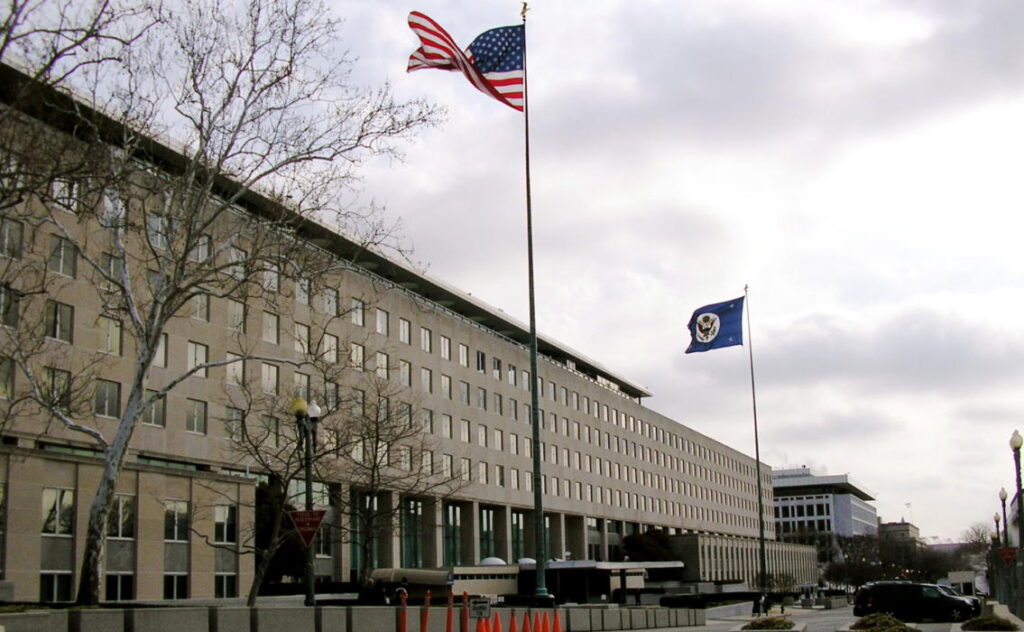Ambassador Jon M. Huntsman, Jr. was sworn in as the United States Ambassador to the Russian Federation in October 2017.
IMAGE 1
He began his career in public service as a staff assistant to President Ronald Reagan. He has served each of the five U.S. presidents since then in critical roles around the world, including as the Ambassador to Singapore, Deputy Assistant Secretary of Commerce for Asia, U.S. Trade Ambassador, and most recently, U.S. Ambassador to China. In all Senate confirmations, he received unanimous votes.
We Can and Must Improve Ties With Russia (Op-ed) | Moscow Times – Jan. 26, 2018 |
Reflecting on my first three months as U.S. Ambassador to Russia and looking forward to the prospects for 2018, I remain convinced that, not only can we improve the U.S.- Russia relationship, but we must.
We are making progress, and there is much more we can achieve by rolling up our sleeves and finding a constructive way forward. We all know that the road ahead will be a difficult one, and that the issues that have come between us are complex.
For a better future for Russians, Americans and the world, we have to begin to find solutions to the common problems that confront us around the globe. How do we get there? I think it all comes down to two things: trust and results.
More below the fold …
It’s no secret that our relationship is at the lowest point in years. People in the United States have made it clear that they expect and demand an improvement in the U.S.-Russia relationship.
It’s part of my job as a diplomat to get results, and I have pledged that I will do whatever I can in an honest, open, and transparent way to work with my Russian counterparts to discuss the hard issues related to our bilateral relationship the same way that I’m sure Ambassador Antonov is doing in America.
America and Russia can do extraordinary things when we cooperate, whether in space, in concert halls, in laboratories, or in business. This cooperation is the essence of people-to-people diplomacy, which forms the bedrock on which Russia and the United States have built lasting cooperation.
We want for as many Russians as possible to visit the United States and meet Americans so that we understand each other better as a people.
That’s why, despite a two-thirds reduction in mission staff, our embassy and consulates are working so hard to accommodate visa demand in Russia. It’s why we opened a new consular facility in Moscow earlier this month and are continuing to promote robust educational and cultural exchanges.
And yet in politics and sometimes in diplomacy, we don’t always collaborate as well as we should. We can take a lesson from effective U.S.-Russian interplay in areas like culture, arts, research, science, technology, and business, because so much is possible when we recognize the common ground that unites Russians and Americans. It is far greater than that which divides us.
As in any relationship, when times are difficult and we don’t see eye-to-eye, we need more communication, not less. As two great civilizations we should be maximizing our relationship, not minimizing it.
We need to take it to a higher level of trust. And once we achieve greater trust, more doors will open and we’ll be able to do more together.
There’s a Glimmer of Hope in U.S.-Russia Relations (Op-ed)
I moved to Moscow 30 years ago because of a diplomatic staffing spat between Ronald Reagan and Mikhail Gorbachev. I’m still here. And we have again found ourselves at a low point in Russian-American relations, with consulates crippled and communications between Moscow and Washington almost non-existent.
IMAGE 2
But I see a glimmer of hope.
In 1987-88, as a driver at the U.S. Embassy, I chauffeured negotiators working on the Intermediate-Range Nuclear Forces Treaty. Тhe INF treaty marks its 30th anniversary this week, even though it is now gasping for life.
But its gestation serves as a model for diplomacy between adversaries. And its birth was followed by two decades of unprecedented cooperation between Russian and American military, diplomats and business people.
That treaty brought me to Votkinsk — Tchaikovsky’s birthplace and home to a nuclear missile factory. I fell in love with a factory worker, her family and the country. So, I made a life here.
Although now a Russian citizen, I will always be a “former foreigner.” It’s an incongruous status, like “former KGB officer.” That said, I have become rather plausibly Russian. And by our nature, we Russians love to give advice. Understanding our take on recent history, along with our current sentiments and frustrations, is essential for improving relations with the West.
Justin Lifflander is a dual U.S.-Russian citizen. He worked as an inspector on the INF Treaty, is a former business editor at The Moscow Times and author of “How Not to Become a Spy: a memoir of love at the end of the Cold War.” The views and opinions expressed in opinion pieces do not necessarily reflect the position of The Moscow Times.
American Diplomacy
○ John Quincy Adams on U. S. Foreign Policy
“She goes not abroad in search of monsters to destroy”
- “John Quincy Adams,” wrote James E. Lewis, Jr., “was raised for greatness.” His record of service to our country may be unparalleled. At age 14 he was secretary to the U.S. minister to Russia. Two years later, in 1783, he served as secretary to his father in France. President Washington appointed him minister to the Netherlands, and later minister to Portugal. President John Adams, his father, named him minister to Prussia.
John Quincy served in the Massachusetts state senate and the U.S. Senate in the early 1800s. Under President Madison, he served as minister to Russia, helped to negotiate an end to the War of 1812, and in 1815 became minister to Great Britain.
